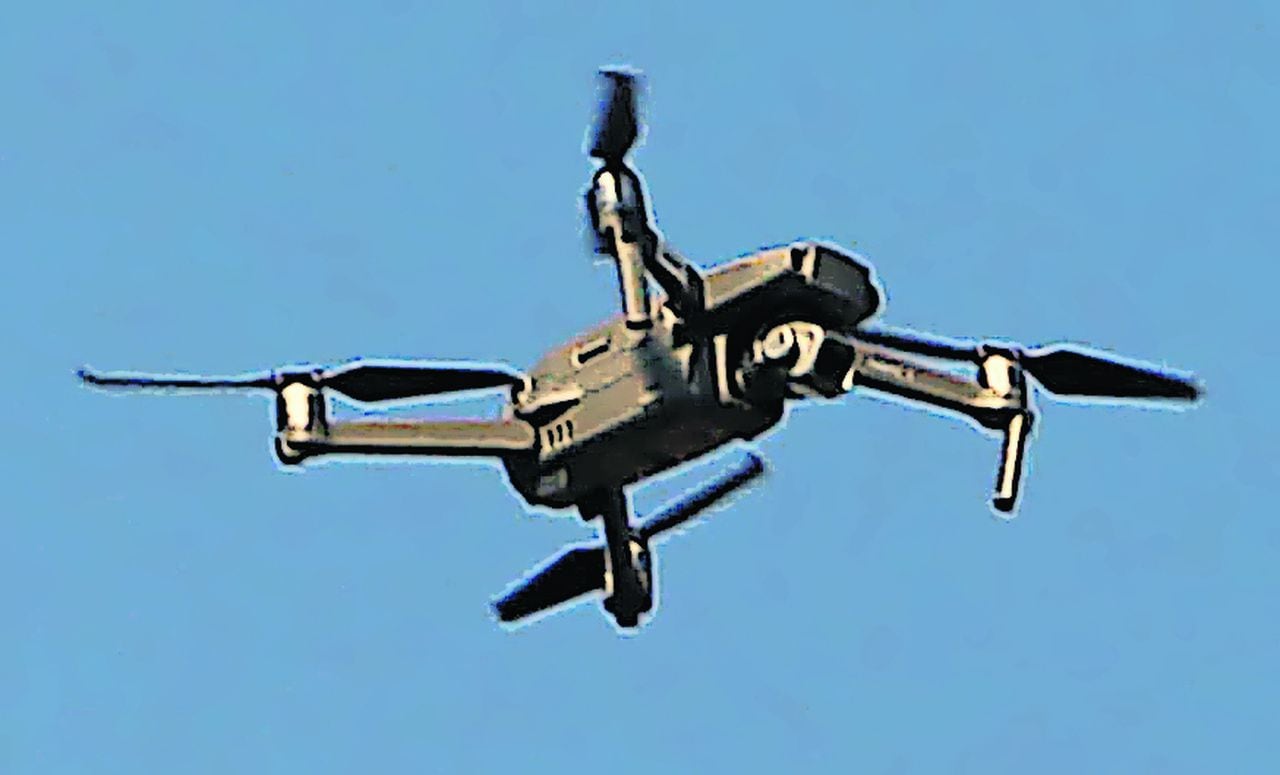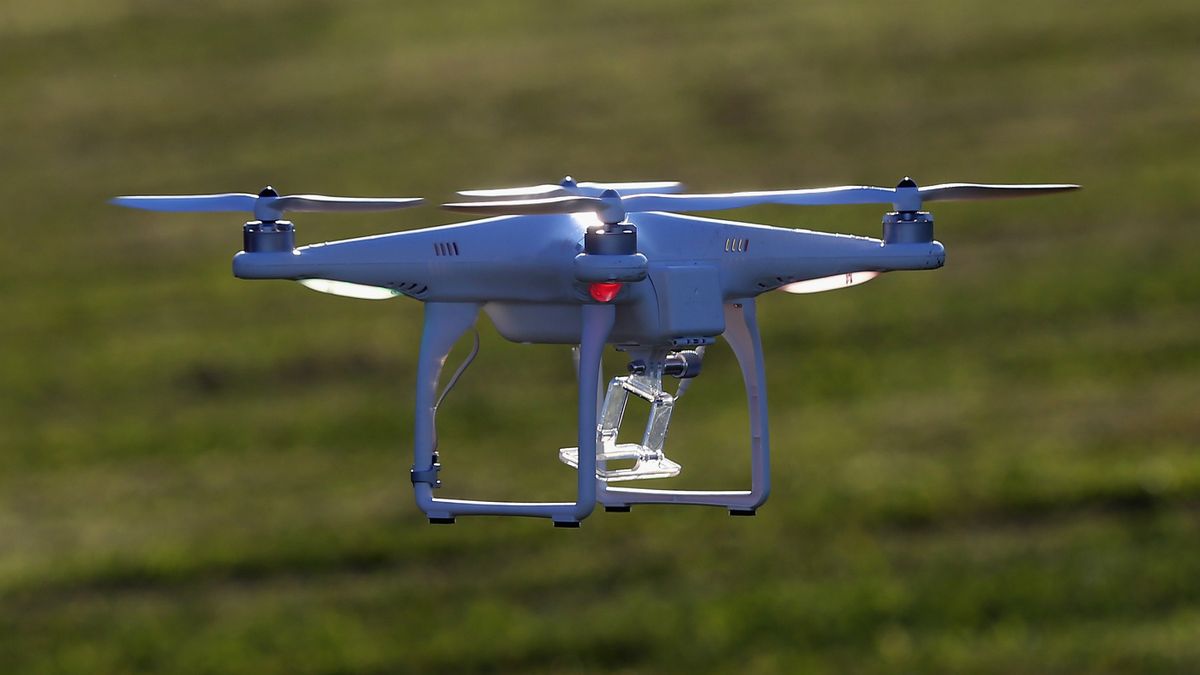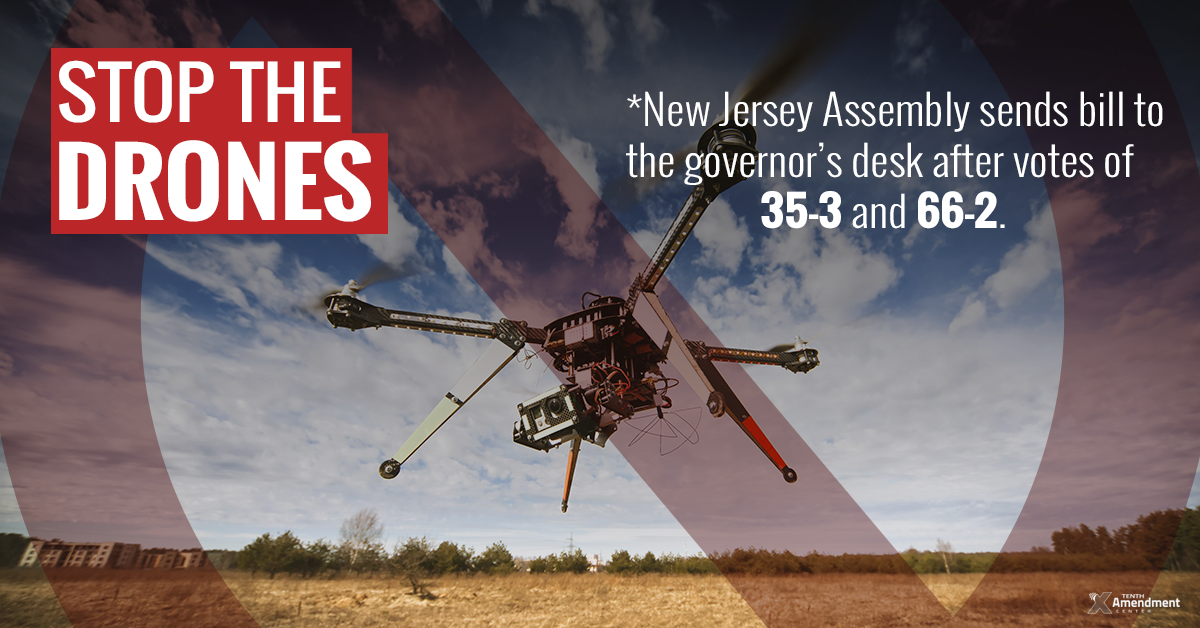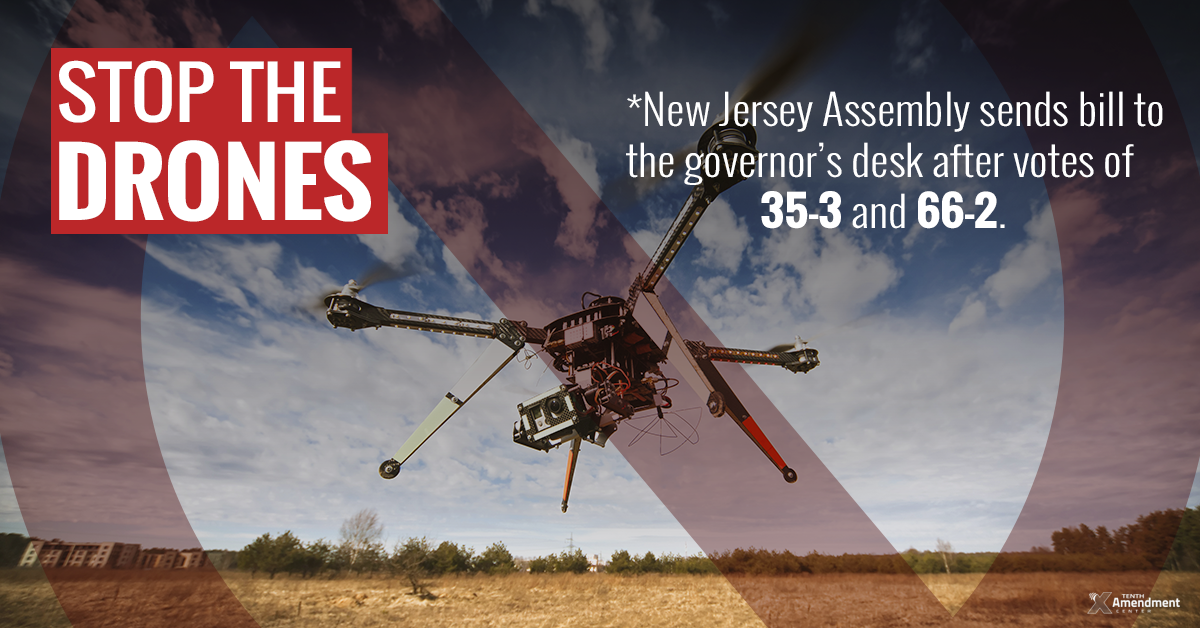Drones Over New Jersey Solved unravels the complexities of drone regulation, incidents, and technological advancements within the state. This exploration delves into the legal framework governing drone operation, examining licensing requirements and comparing New Jersey’s approach with neighboring states. We’ll also investigate common drone-related incidents, analyzing their causes, consequences, and the challenges faced by law enforcement in addressing them.
Furthermore, the narrative will highlight the role of technology in drone monitoring and control, showcasing both the benefits and risks associated with drone integration into various sectors of New Jersey’s economy and public safety initiatives.
The narrative further examines the economic impact of drones, exploring the opportunities and challenges presented by this burgeoning industry. Case studies of successfully resolved drone incidents will provide valuable insights into best practices and effective strategies for managing drone-related issues. This comprehensive analysis aims to provide a balanced perspective on the multifaceted world of drones in New Jersey, offering a clearer understanding of the past, present, and future implications of this transformative technology.
Drone Regulations in New Jersey
Navigating the airspace above New Jersey with a drone requires understanding the state’s specific regulations. These laws aim to balance the innovative potential of drone technology with the need for public safety and privacy.
Current Drone Laws and Regulations
New Jersey’s drone laws largely align with federal regulations established by the Federal Aviation Administration (FAA). These regulations cover various aspects of drone operation, including registration, licensing, operational limitations, and airspace restrictions. Key aspects include maintaining visual line of sight, adhering to weight limits, and avoiding flights over populated areas unless specific permissions are obtained.
The recent drone activity over New Jersey, initially causing concern, has been resolved. Understanding the complexities of aerial surveillance often requires innovative solutions, such as the advanced technology showcased in the coquihalla weather camera , which provides real-time visual data. This highlights the importance of robust monitoring systems, ultimately leading to quicker resolutions for similar incidents involving drones over New Jersey in the future.
Licensing and Registration Requirements
Drone pilots in New Jersey must comply with FAA registration requirements for drones weighing over 0.55 pounds. This involves registering the drone with the FAA and obtaining a registration number. While a pilot’s license isn’t always mandatory for recreational use, commercial drone operation necessitates a Remote Pilot Certificate from the FAA, requiring passing a knowledge test and demonstrating competency.
Comparison with Neighboring States
New Jersey’s drone laws are broadly similar to those of neighboring states like New York, Pennsylvania, and Delaware. However, specific nuances exist regarding airspace restrictions near airports, sensitive infrastructure, and wildlife reserves. Each state may have unique interpretations or additions to the federal regulations.
Summary of New Jersey Drone Regulations
| Regulation Type | Description | Penalties | Relevant Agencies |
|---|---|---|---|
| Registration | Required for drones over 0.55 lbs | Fines and potential legal action | Federal Aviation Administration (FAA) |
| Licensing (Commercial) | Remote Pilot Certificate required for commercial operations | Fines, suspension of certification, and legal action | Federal Aviation Administration (FAA) |
| Operational Restrictions | Visual Line of Sight (VLOS), weight limits, airspace restrictions | Fines and potential legal action | Federal Aviation Administration (FAA), New Jersey State Police |
| Privacy | Restrictions on surveillance and data collection | Fines and potential legal action | New Jersey State Police, potentially other agencies depending on the nature of the violation |
Common Drone-Related Incidents in New Jersey
Despite regulations, drone-related incidents occur. Understanding these incidents helps in developing preventative measures and improving safety.
Frequent Drone Incidents and Consequences
Common incidents involve unauthorized flights near airports, incursions into restricted airspace (e.g., over stadiums or government buildings), and privacy violations through unauthorized aerial surveillance. Penalties for such infractions range from fines to legal prosecution, depending on the severity and intent.
Challenges for Law Enforcement
Addressing drone-related issues presents challenges for law enforcement. Identifying and tracking drones, especially smaller models, can be difficult. Determining the operator’s identity and location also poses significant investigative hurdles. Technological advancements are needed to effectively counter these challenges.
Examples of Common Drone Incidents
- Near-miss with an airplane: Caused by a drone pilot flying too close to an airport. Solution: Stricter enforcement of no-fly zones and increased public awareness campaigns.
- Unauthorized flight over a critical infrastructure site: Caused by negligence or malicious intent. Solution: Enhanced drone detection systems and improved security measures.
- Privacy violation: Caused by unauthorized aerial surveillance of private property. Solution: Clearer legal definitions of privacy violations and stricter penalties.
Technological Solutions for Drone Monitoring and Control
Several technologies are employed to enhance drone detection and control, improving safety and security.
Drone Detection Systems
Various systems are used, ranging from radar and radio frequency (RF) detection to optical and acoustic sensors. Radar systems offer long-range detection but can be less precise in identifying smaller drones. RF systems detect the radio signals drones emit, while optical and acoustic systems rely on visual and auditory cues. Each system has limitations regarding range, accuracy, and environmental interference.
Hypothetical Drone Traffic Management System
A hypothetical system for managing drone traffic over sensitive areas in New Jersey could integrate multiple detection technologies (radar, RF, optical) with a central control system. This system would track drone locations, identify unauthorized flights, and issue alerts to authorities. It would also incorporate geofencing technology to restrict drone access to sensitive areas. A visual representation would involve a central monitoring station displaying real-time drone locations on a map, alongside alerts and operator information.
The system would be linked to law enforcement and other relevant agencies for coordinated response.
Public Safety and Drone Operations
Drones offer significant benefits for public safety, but unauthorized use poses risks.
Benefits of Drones in Public Safety
Drones are invaluable tools for search and rescue operations, providing aerial perspectives for faster location of missing persons or accident victims. They also assist in emergency response by providing real-time situational awareness during natural disasters or other emergencies. Law enforcement can utilize drones for surveillance and crime scene investigation.
Risks Associated with Unauthorized Drone Flights

Unauthorized drone flights near critical infrastructure (power plants, bridges, airports) pose significant safety risks. Collisions with aircraft or damage to infrastructure can have severe consequences. The potential for drones to be used for malicious purposes, such as delivering explosives, also represents a major concern.
Importance of Public Awareness
Public awareness campaigns are crucial for promoting safe drone operation. Educating the public about regulations, responsible flying practices, and the potential consequences of misuse is vital for preventing incidents.
Benefits and Risks of Drone Usage in Public Safety

| Aspect | Benefits | Risks |
|---|---|---|
| Search and Rescue | Faster location of missing persons, improved situational awareness | Potential for drone malfunction or operator error |
| Emergency Response | Real-time assessment of damage, improved coordination of rescue efforts | Risk of interference with emergency vehicles or rescue operations |
| Law Enforcement | Enhanced surveillance capabilities, safer crime scene investigation | Potential for privacy violations or misuse of surveillance data |
Economic Impact of Drones in New Jersey

The drone industry presents substantial economic opportunities across various sectors in New Jersey.
Economic Opportunities
Drones are transforming industries like agriculture (precision spraying, crop monitoring), construction (site surveying, progress monitoring), and delivery services (package delivery, medical transport). This creates new jobs and stimulates economic growth.
Examples of Successful Drone Businesses
Several companies in New Jersey are successfully integrating drones into their operations. These range from agricultural businesses utilizing drones for crop monitoring to construction firms employing drones for site surveys and progress tracking. Delivery services are also increasingly exploring drone-based delivery systems.
Potential Economic Benefits and Challenges
- Benefits: Job creation, increased efficiency, new business opportunities, improved infrastructure inspection.
- Challenges: Regulatory hurdles, technological limitations, public acceptance, cybersecurity concerns.
Case Studies of Solved Drone Incidents in New Jersey
Analyzing solved drone incidents provides valuable insights into effective resolution strategies.
Detailed Accounts of Resolved Incidents
While specific details of resolved incidents may not be publicly available due to privacy and security concerns, general examples include situations where unauthorized drones were identified near airports, leading to successful intervention by law enforcement. Other cases involve the use of drone detection technology to identify and track drones involved in suspected illegal activities.
Methods Employed and Best Practices, Drones over new jersey solved
Methods employed often involve a combination of drone detection technologies, investigation, and collaboration between law enforcement agencies and the FAA. Best practices emphasize proactive measures, such as public awareness campaigns and improved security at sensitive locations.
The recent concerns regarding unauthorized drone activity over New Jersey appear to be resolved. This highlights the increasing need for advanced air mobility solutions, such as those being developed by companies like archer aviation , which are working to create safer and more regulated airspace. Ultimately, these technological advancements will likely contribute to more effective drone management and prevention of future incidents over New Jersey.
Summary of Case Studies
| Location | Nature of Incident | Resolution |
|---|---|---|
| Near Newark Liberty International Airport | Unauthorized drone flight near runway | Drone operator identified and fined; increased airport security measures implemented. |
| [Hypothetical Location – State Park] | Drone used for unauthorized wildlife observation | Education provided to the operator; increased park ranger patrols |
In conclusion, the successful resolution of drone-related incidents in New Jersey underscores the importance of a multifaceted approach encompassing robust regulation, advanced technology, and public awareness. By understanding the legal landscape, employing effective detection and monitoring systems, and fostering responsible drone operation, New Jersey can harness the immense potential of drone technology while mitigating associated risks. The case studies presented demonstrate the efficacy of proactive measures and collaborative efforts in ensuring safe and productive integration of drones into the state’s diverse landscape.
The future of drone technology in New Jersey appears bright, contingent upon continued collaboration between stakeholders to address emerging challenges and opportunities.
Helpful Answers: Drones Over New Jersey Solved
What are the penalties for illegal drone operation in New Jersey?
Penalties vary depending on the violation but can include fines, license suspension, and even criminal charges.
Where can I register my drone in New Jersey?
Registration requirements are generally handled at the federal level through the FAA, not specifically through a New Jersey agency.
Are there specific no-fly zones for drones in New Jersey?
Yes, airspace restrictions exist near airports, critical infrastructure, and other sensitive areas. Consult the FAA’s B4UFLY app for current restrictions.
What types of insurance are recommended for drone operators in New Jersey?
Liability insurance is highly recommended to cover potential damages or injuries caused by drone operation.
